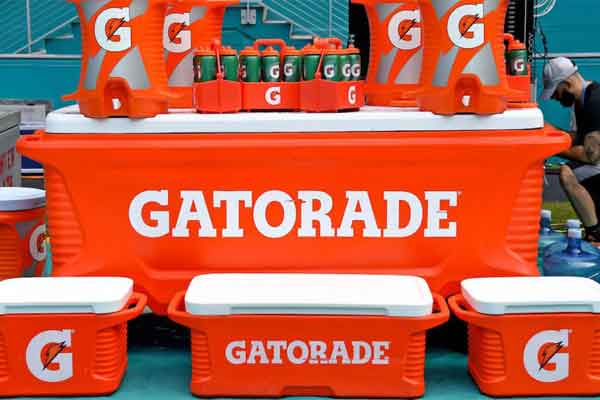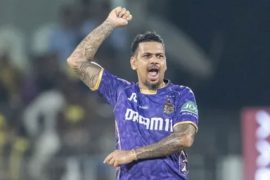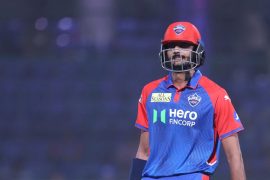As the most active sports time of the year approaches, Gatorade is looking to solidify its market share.
Jeff Kearney, Gatorade’s global head of sports marketing, always gets excited heading into the fall season when baseball and the WNBA hit their postseason and the NFL, NBA and NHL all get underway.
This year, however, he’s most eager to start the third season of the company’s partnership with the NBA G League, the first U.S. professional league with naming rights. Kearney said the partnership is an extension of its partnership with the NBA, which has led to the belief that the company is a “critical piece of equipment.”
“When we started this deeper partnership, we viewed this as one of our longest-running partners essentially giving us a green light to improve the game,” Kearney said.
The first season was a feeling out stage, getting to know the team setups and schedules. In year two, Gatorade has provided testing with 21 teams through the Gatorade Sports Science Institute. The partnership has an ultimate goal of elevating the league by providing its players with access to health and nutritional support they might not otherwise receive, Kearney said.
As Gatorade sport scientists perform regular fitness and nutritional testing on the basketball players, they’re also testing products. The company recently released Gatorade Essentials to the public, a line it first tested in the G League.
“We have our own basketball league to test and prove on the court,” he said. “[The NBA] really is using the G League as the feeder system and that gets us super excited because they see the future of the league and using it as a test league to make the league and players better.”
Kearney said Gatorade regularly works with other teams, leagues and athletes with testing, but said the timing and conditions aren’t up to them. That’s where the unfettered access to the G League teams makes for an ideal ecosystem for trial and error. They’ve worked on sweat and recovery testing and this season will look to implement a few tests, which could include Omega- 3 index testing and the monitoring of hydration habits.
“They’re things you can apply across sports -what education and nurturing does to performance,” Kearney said.
The 365-day access is the most valuable piece of the partnership, Kearney said, without playing down the magnitude of having the brand in the league name and mentioned every time its talked about. The return on investment from impressions alone was likely worth the investment, Kearney said, but the proof will be the product evolution.
“It’s always great to see the brand in the right type of news, connected to the right kind of property,” he said. “It’s growing and growing, but if that’s the only thing we’re measuring success with, it’s a failure.”
The G League naming rights do help distinguish Gatorade as an unquestioned leader in the basketball space, said Dae Hee Kwak, an associate professor of sport management at the University of Michigan.
Kwak said the company’s access is key for Kearney’s stated mission of testing out products and providing athlete support, but also for gaining further global exposure that goes beyond the frequent exposure of Gatorade bottles and orange coolers.
“Product trialability is key for low-involvement products like beverages,” Kwak said. “If you look at the global market, the exclusive partnership helps the brand to penetrate into international markets where Gatorade does not have the same level of brand awareness in the U.S.
“Basketball is now a global sport and such an exclusive partnership will help the brand to activate differently in key global markets,” he said.
Gatorade is trying to further its global reach, as Kearney noted it now has partnerships with soccer clubs FC Barcelona, Fulham FC, Manchester City FC and Arsenal FC. The company also has deals with Serena Williams, Lionel Messi and the UEFA Champions League, on top of its U.S. league partnerships with the NFL, PGA, MLB, and more than 60 Division I programs.
As competitors continue to enter the sports and performance drink category, Gatorade will focus on itself and the innovation that helped create the industry, Kearney said.
“Having a bullseye on our back is right where we want to be,” he said. “We love to walk into a clubhouse and say, ‘If there’s something that works better, prove it.”
The status Gatorade has obtained over the past several decades as the default sports drink should help it maintain its market share, Kwak said. He did say Coca-Cola’s investment in BodyArmor amplifies the interesting storylines in the category.
“BodyArmor is rapidly expanding their sponsorship portfolio which will help the brand gain more market share down the road,” he said. “Product innovation might be key for the mature brand to those consumers less loyal to specific sport drink brands. On top of the product innovation, creative and relevant partnership activations that engage with target audiences will be critical for Gatorade to armor against competitors.”
(Press Release)
Disclaimer:
The information contained in this article is for educational and informational purposes only and is not intended as a health advice. We would ask you to consult a qualified professional or medical expert to gain additional knowledge before you choose to consume any product or perform any exercise.






